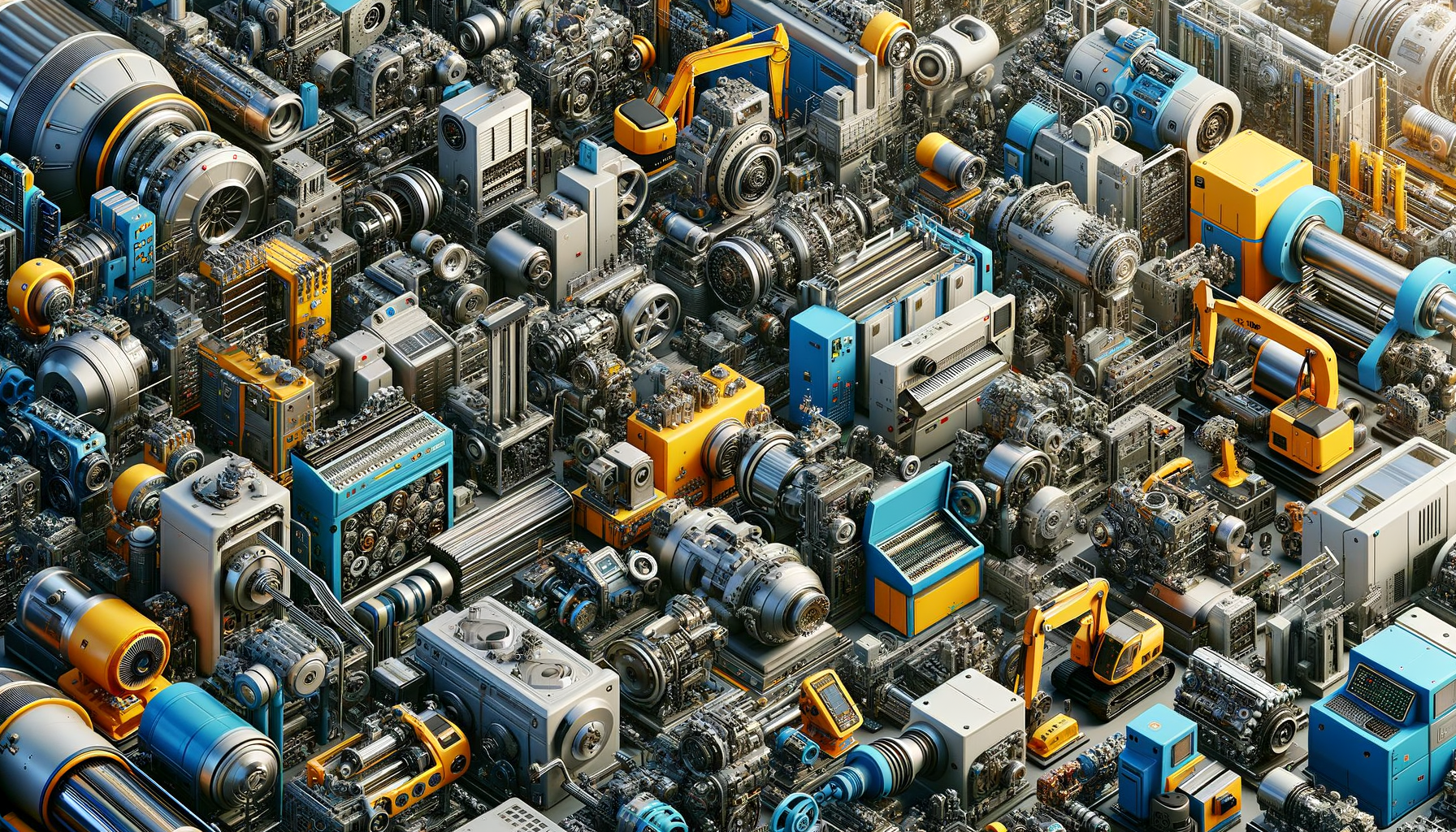The Role of Industrial Machines in Modern Manufacturing
Industrial machines have become indispensable in modern manufacturing, revolutionizing how products are made and assembled. These machines are designed to perform tasks with precision and speed, which is crucial in meeting the demands of today’s fast-paced markets. They help in automating repetitive tasks, thus reducing human error and increasing efficiency. This automation allows companies to maintain consistent quality and scale their production processes effectively.
In manufacturing, industrial machines such as CNC machines, assembly robots, and conveyor systems are commonly used. These machines not only enhance productivity but also ensure that products adhere to stringent quality standards. For example, CNC machines are renowned for their ability to produce complex components with high accuracy, which is essential in industries like aerospace and automotive.
Moreover, the integration of industrial machines with advanced technologies such as IoT and AI has further enhanced their capabilities. These technologies enable machines to perform predictive maintenance, reducing downtime and prolonging machine life. As a result, companies can optimize their operations and improve their bottom line.
Industrial Machines in the Automotive Sector
The automotive industry heavily relies on industrial machines to produce vehicles efficiently and safely. From the initial stages of design and prototyping to the final assembly, machines play a critical role in every step of the process. Robots are used extensively for welding, painting, and assembling parts, ensuring precision and uniformity in vehicle production.
One of the significant advantages of using industrial machines in the automotive sector is the ability to produce vehicles at scale without compromising on quality. Automated assembly lines streamline the production process, allowing manufacturers to meet high demand while maintaining consistent standards. Additionally, these machines help in reducing production costs by minimizing waste and optimizing resource use.
Furthermore, industrial machines contribute to innovation in the automotive industry by enabling the production of complex components that are difficult to create manually. For instance, 3D printing machines are now used to produce lightweight parts that enhance vehicle performance and fuel efficiency. This innovation is crucial in developing eco-friendly vehicles that meet environmental regulations.
Enhancing Efficiency in the Food and Beverage Industry
The food and beverage industry benefits immensely from industrial machines, which help in maintaining hygiene standards and ensuring product consistency. Machines such as mixers, fillers, and packaging equipment are essential in processing and packaging food products efficiently. These machines are designed to handle large volumes while maintaining the quality and safety of food products.
Industrial machines in this sector are equipped with features that enhance efficiency and reduce manual labor. For example, automated packaging machines can quickly wrap and seal products, reducing the time needed for packaging and minimizing human contact with the food. This automation is vital in preventing contamination and ensuring that products meet health and safety regulations.
Moreover, the use of industrial machines in the food and beverage industry allows companies to innovate and introduce new products to the market swiftly. Machines can be programmed to handle different recipes and packaging styles, providing flexibility and enabling companies to respond to changing consumer preferences.
Industrial Machines and Their Impact on the Textile Industry
In the textile industry, industrial machines are crucial for weaving, dyeing, and finishing fabrics. These machines enable manufacturers to produce textiles at a large scale while maintaining high-quality standards. Automated looms and knitting machines, for example, can produce intricate patterns and designs that would be challenging to achieve manually.
The use of industrial machines in textile production also leads to significant cost savings. Machines can operate continuously, reducing the need for a large workforce and minimizing labor costs. Additionally, these machines are designed to optimize material usage, reducing waste and improving the sustainability of textile production.
Furthermore, industrial machines facilitate innovation in the textile industry by allowing manufacturers to experiment with new materials and production techniques. For instance, digital textile printing machines enable the creation of custom designs and patterns, opening up new possibilities for fashion and home textiles. This innovation helps companies differentiate their products and cater to niche markets.
Future Trends in Industrial Machines
The future of industrial machines is promising, with advancements in technology poised to further enhance their capabilities. The integration of smart technologies such as IoT, AI, and machine learning is expected to revolutionize how machines operate and interact with each other. These technologies will enable machines to perform complex tasks autonomously, improving efficiency and reducing the need for human intervention.
One of the emerging trends is the use of collaborative robots or cobots, which are designed to work alongside humans. These robots are equipped with sensors and AI algorithms that allow them to adapt to changes in the production environment and collaborate with human workers safely. This collaboration is expected to enhance productivity and open up new possibilities for industrial automation.
Additionally, the focus on sustainability is driving the development of energy-efficient machines that minimize environmental impact. Manufacturers are investing in machines that consume less energy and produce less waste, aligning with global efforts to reduce carbon emissions and promote sustainable practices.
Overall, the future of industrial machines is bright, with innovations set to transform various industries and drive economic growth. As technology continues to evolve, industrial machines will play an increasingly vital role in shaping the future of manufacturing and production.




Leave a Reply